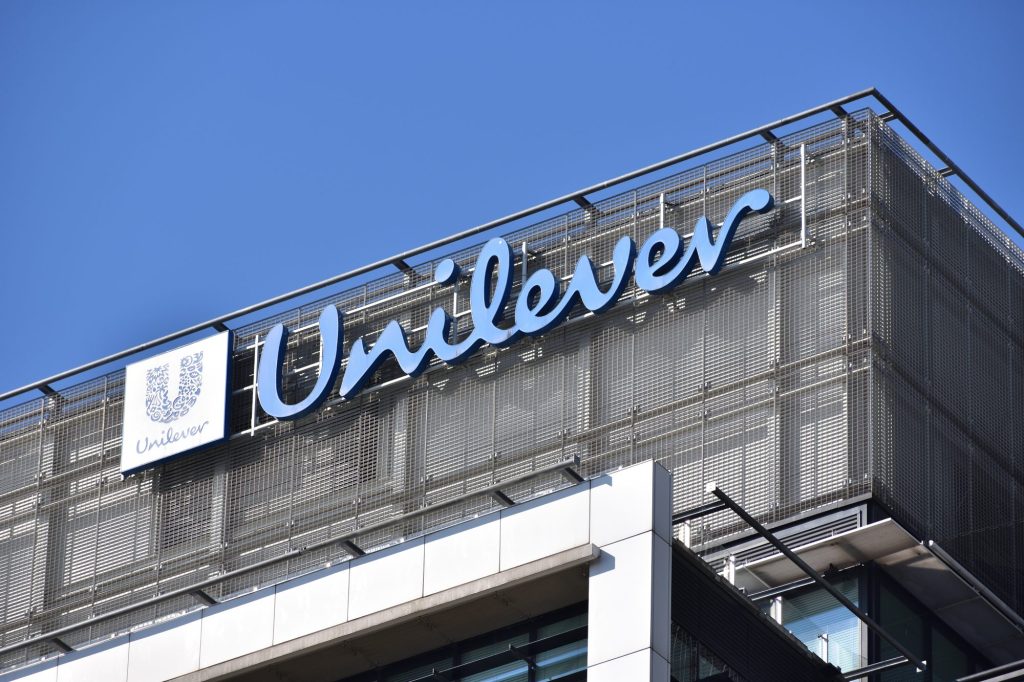After their net-zero pledges expired, these companies set a course without SBTi
JBS, United Airlines and Johnson & Johnson are among the more than 200 companies that have not subsequently had net-zero targets validated by the organization. Read More

-
- 239 companies had net-zero commitments removed by the Science Based Targets initiative in March 2024.
-
- Just 17 have since had net-zero targets validated by the organization.
-
- Companies without net-zero targets largely declined to comment, although some are working with different net-zero guidelines.
In March 2024, the Science Based Targets initiative (SBTi) revealed it had removed 239 companies, including Microsoft, Procter & Gamble, Unilever and Walmart, from the list of those committed to setting net-zero targets. The companies had timed out: SBTi rules give businesses 24 months to submit targets for validation after the initiative finalizes a standard or receives a commitment, and the companies missed the deadline.
Trellis reached out to SBTi and several companies that had commitments removed to understand what happened next. Here’s what we discovered.
Very few subsequently had targets validated
According to SBTi data, as of last week just 17 of the 239 companies have had net-zero targets validated since their commitments were removed. The list includes British American Tobacco, Gap and S&P Global.
The remaining 222 companies — 93 percent of those that had commitments removed — includes many large businesses, from the large French utility EDF to JBS, a food giant, together with United Airlines, Johnson & Johnson and Unilever. (Some of these companies may be in the process of having net-zero targets validated. SBTi does not comment on targets that are being assessed.)
“These companies joined the Business Ambition for 1.5C campaign before the Corporate Net-Zero Standard was launched,” said an SBTi spokesperson. “Some weren’t in a position to follow through on their commitment, but their early ambition sparked global momentum. Companies that want to effectively address climate risk and seize the opportunities of transition continue to come to the SBTi.”
It’s worth noting that SBTi offers companies the option of committing only to a near-term target, often set for 2030. Of the 239 companies that had commitments removed, 14 subsequently had near-term targets validated, including Unilever and Johnson & Johnson. Many others, including Microsoft, Walmart, United and EDF, already had near-term targets validated.
Looking across the economy as a whole, slightly more than 1,900 companies have had net-zero targets validated by SBTi and close to 2,900 have committed to doing so.
Companies are exploring other options
Trellis reached out to 10 of the companies that have not subsequently had net-zero targets validated for updates on their strategy. The majority — Carrefour, Procter & Gamble (P&G), United, JBS, Elevance Health (formerly known as Anthem), Engie and Johnson & Johnson — did not return our inquiries.
The replies we did receive, together with press releases from companies on our list, reveal that some companies are exploring other options for guiding their net-zero journeys.
Unilever, for instance, said it remains committed to reaching net zero by 2039 — more than a decade ahead of many other companies. A company spokesperson said the plan “aligns with the Intergovernmental Panel on Climate Change’s definition of net zero, which differs from the SBTi’s definition,” but did not return a follow-up request for clarification on how Unilever interprets the difference.
Carrefour, a retailer with more than 14,000 stores in 40 countries, has since had the interim targets in its transition plan validated as in line with 1.5 degrees Celsius of warming by the ACT Initiative, a standard originally developed by the French government and now hosted by the World Benchmarking Alliance. Carrefour has begun using the methodology to assess the plans of its suppliers in its home country of France. However, the company’s existing net-zero commitments would likely not qualify for SBTi approval because, according to a review by the investor initiative Climate Action 100+, the targets do not cover Scope 3.
Several companies that had net-zero commitments removed, including Microsoft, P&G and Unilever, are signatories to The Climate Pledge, which commits companies to reaching net zero by 2040. (Amazon, a co-founder of the pledge, had its net-zero commitment removed by the SBTi in 2023.)
The Climate Pledge encourages companies to make commitments but is not intended as a standard. As such, it offers significant flexibility, particularly around the use of offsets. SBTi’s methodology permits the use of carbon removals to offset around 10 percent of residual emissions at the end of a company’s journey to net zero; the Climate Pledge does not specify an upper limit and allows a broader range of offsets to be used.
Asked whether alternative frameworks risk splintering corporate action on climate, SBTi noted that near-term and net-zero submissions have grown nearly 30 percent so far in 2025 and by more than 100 percent in 2024.
“These back-to-back increases send two clear messages,” the spokesperson said. “Firstly, companies continue to be committed to climate action. Secondly, they see the SBTi as the trusted roadmap to guide impactful implementation.”
Keeping an eye on SBTi’s plans
SBTi is updating its net-zero standard, and some companies that have not had net-zero targets validated told Trellis that they’re watching the process closely.
“Our approach will be informed by science and reflect our position in the overall value chain as a global multicategory retailer,” Walmart said in a statement.
“As the [standard] continues to mature, we are thoughtfully evaluating how its evolving requirements align with our broader decarbonization strategy,” a Microsoft spokesperson said, noting the company is particularly interested in the SBTi’s rules on residual emissions and use of removals.
“We are following this process closely and have submitted our feedback on the draft standard,” the Unilever spokesperson said.
Updated July 11 to include context from SBTi on the Business Ambition for 1.5C campaign.
















